Related Research Articles
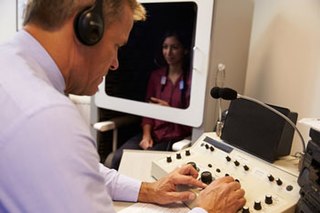
Audiology is a branch of science that studies hearing, balance, and related disorders. Audiologists treat those with hearing loss and proactively prevent related damage. By employing various testing strategies, audiologists aim to determine whether someone has normal sensitivity to sounds. If hearing loss is identified, audiologists determine which portions of hearing are affected, to what degree, and where the lesion causing the hearing loss is found. If an audiologist determines that a hearing loss or vestibular abnormality is present, they will provide recommendations for interventions or rehabilitation.
Allen Kerr AO, FRS, FAA was a Scottish-born Australian biologist. He served as Professor of Plant Pathology at the University of Adelaide. His most significant work was his study of crown gall — a plant cancer induced by Agrobacterium tumerfaciens.
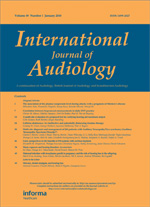
The International Journal of Audiology is a monthly peer-reviewed medical journal covering research in audiology, including psychoacoustics, anatomy, physiology, cellular and molecular biology, genetics, neuroscience, speech and hearing sciences and rehabilitation devices. It is an official journal of the British Society of Audiology, the International Society of Audiology, and the Nordic Audiological Society.
Ingo R. Titze is a voice scientist and executive director of the National Center for Voice and Speech and Adjunct Professor in the Department of Otolaryngology/Head and Neck Surgery at the University of Utah in Salt Lake City. He also teaches at the Summer Vocology Institute, also housed at the University of Utah. He is a Distinguished Professor at the Department of Communication Sciences and Disorders at the University of Iowa and has written several books relating to the human voice.
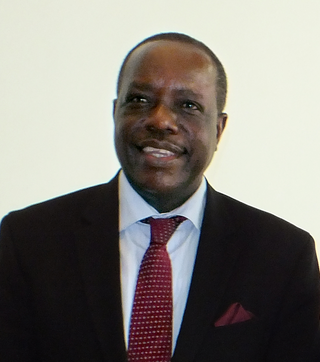
Sospeter Mwijarubi Muhongo MP is a Tanzanian geologist and a nominated member of the Tanzanian Parliament.

Henryk Skarzynski is a Polish doctor otolaryngologist, audiologist and phoniatrist, creator and director of Warsaw Institute of Physiology and Pathology of Hearing and World Hearing Center in Kajetany.
Sebastian Möller is an expert for quality of experience and speech technology.
Johannes "Hans" van Leeuwen is educator, engineer, inventor, researcher, and entrepreneur. He is an emeritus professor of Civil, Construction and Environmental Engineering at Iowa State University and an entrepreneur in ethanol co-product development. His research and innovations have worked to solve various problems including, new water purification methods, a way of creating food and animal feed from waste, and a process in making the purest alcohol ever made.
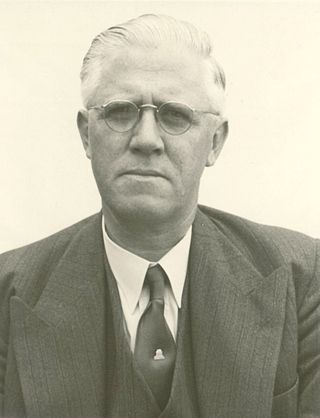
Pierre de Villiers Pienaar (1904–1978) was a South African Afrikaans academic and Professor at University of the Witwatersrand (Wits) and later at University of Pretoria, who pioneered Speech Language Therapy in South Africa and specialising in Audiology and Lexicography as well as being an Afrikaans author. As Lexicographer in 1973, he was part of the group of authors that established the Afrikaans Explanatory Dictionary alongside Prof M.S.B. Kritzinger and Prof F.J. Labuschagne.
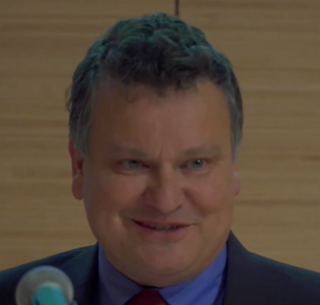
Thomas Henzinger is an Austrian computer scientist, researcher, and former president of the Institute of Science and Technology, Austria.

Mohan Kameswaran is an Indian otorhinolaryngologist, medical academic and the founder of MERF Institute of Speech and Hearing, a Chennai-based institution providing advanced training in audiology and speech-language pathology. He is one of the pioneers of cochlear implant surgery in India and a visiting professor at Rajah Muthiah Medical College of the Annamalai University and Sri Ramachandra Medical College and Research Institute, Chennai. He has many firsts to his credit such as the performance of the first auditory brain stem implantation surgery in South and South East Asia, the first pediatric brain stem implantation surgery in Asia, the first totally implantable hearing device surgery in Asia Pacific region, and the first to introduce KTP/532 laser-assisted ENT surgery in India. The Government of India awarded him the fourth highest civilian honour of the Padma Shri, in 2006, for his contributions to Indian medicine.
Claire Penn (1951–2018) was a South African speech and language pathologist, and held the endowed chair of Speech Pathology and Audiology at the University of the Witwatersrand, and was a former senior research specialist at the Human Sciences Research Council. She received the Order of Mapungubwe (Silver) in 2007, South Africa's highest honor, for her work in linguistics, sign language, child language, aphasia, and head injury.
Pedro Willem Crous is a South African mycologist and plant pathologist.
Sharon G. Kujawa is a clinical audiologist, Director of Audiology Research at the Massachusetts Eye and Ear Infirmary, Associate Professor of Otology and Laryngology at Harvard Medical School, and Adjunct Faculty of Harvard-MIT Health Sciences and Technology.and specialist in otolaryngology, Her specialty is the effects of noise exposure and aging on auditory function.

Debara Lyn Tucci is an American otolaryngologist, studying ear, nose, and throat conditions. She co-founded the Duke Hearing Center and currently serves as a professor of Surgery and Director of the Cochlear Implant Program at Duke University. In September 2019 she became Director of the National Institute on Deafness and Other Communication Disorders, one of the National Institutes of Health's 27 Institutes and Centers.
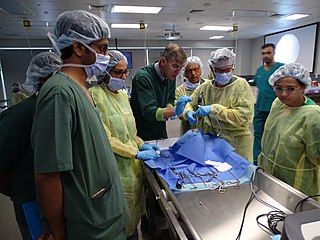
Heinz Stammberger (1946-2018) was a German-Austrian teacher, and researcher in the field of sinus surgery and otolaryngology. He was an Emeritus Professor and Head of the Department of General ORL, H&NS of the Medical University of Graz.
Viness Pillay FAAS (1970–2020) was a South African professor of pharmacy at the University of the Witwatersrand in Johannesburg. He was the Director of the Wits Advanced Drug Delivery Platform (WADDP), a member of African Academy of Sciences, Academy of Translational Medicine Professionals (ATMP) and a beneficiary of the 2013 Olusegun Obasanjo Innovative Award for developing the RapiDiss Wafer Technology as an innovative way to provide effective anti-retroviral (ARV) drug therapy to children afflicted with HIV/AIDS.
Professor Michael John Wingfield is a South African academic and scientist who studies plant pathology and biological control. He was the founding director of the Forestry and Agricultural Biotechnology Institute, University of Pretoria. Wingfield has authored or co-authored over 1,000 scientific publications and is considered a leading expert in the field of forest health and invasive species. He has received numerous awards and honours throughout his career, including Harry Oppenheimer Fellowship Award and John Herschel Medal, the highest accolade from the Royal Society of South Africa. He is also a Fellow of the Royal Society of South Africa and the African Academy of Sciences. Wingfield has had several fungi named after him.
Harvey Albert Dillon is an Australian expert in auditory science and linguistics.
Thokozani Majozi is a South African chemical engineer. He has been the Dean of Engineering and the Built Environment at the University of the Witwatersrand since 2021. He holds the South African Research Chair in Sustainable Process Engineering at the same university. His research focuses on chemical process engineering, particularly batch chemical process integration.
References
- 1 2 3 4 "De Wet Swanepoel". www.up.ac.za. Retrieved 2022-06-30.
- ↑ Engineers, My (2020-12-10). "Professor Daniël Christiaan De Wet Swanepoel Wins African Academy of Sciences Prize". My Engineers. Retrieved 2022-06-30.
- ↑ "South African Professor Daniël Christiaan de Wet Swanepoel wins prestigious African Academy of Sciences science prize". www.thenigerianvoice.com. Retrieved 2022-06-30.